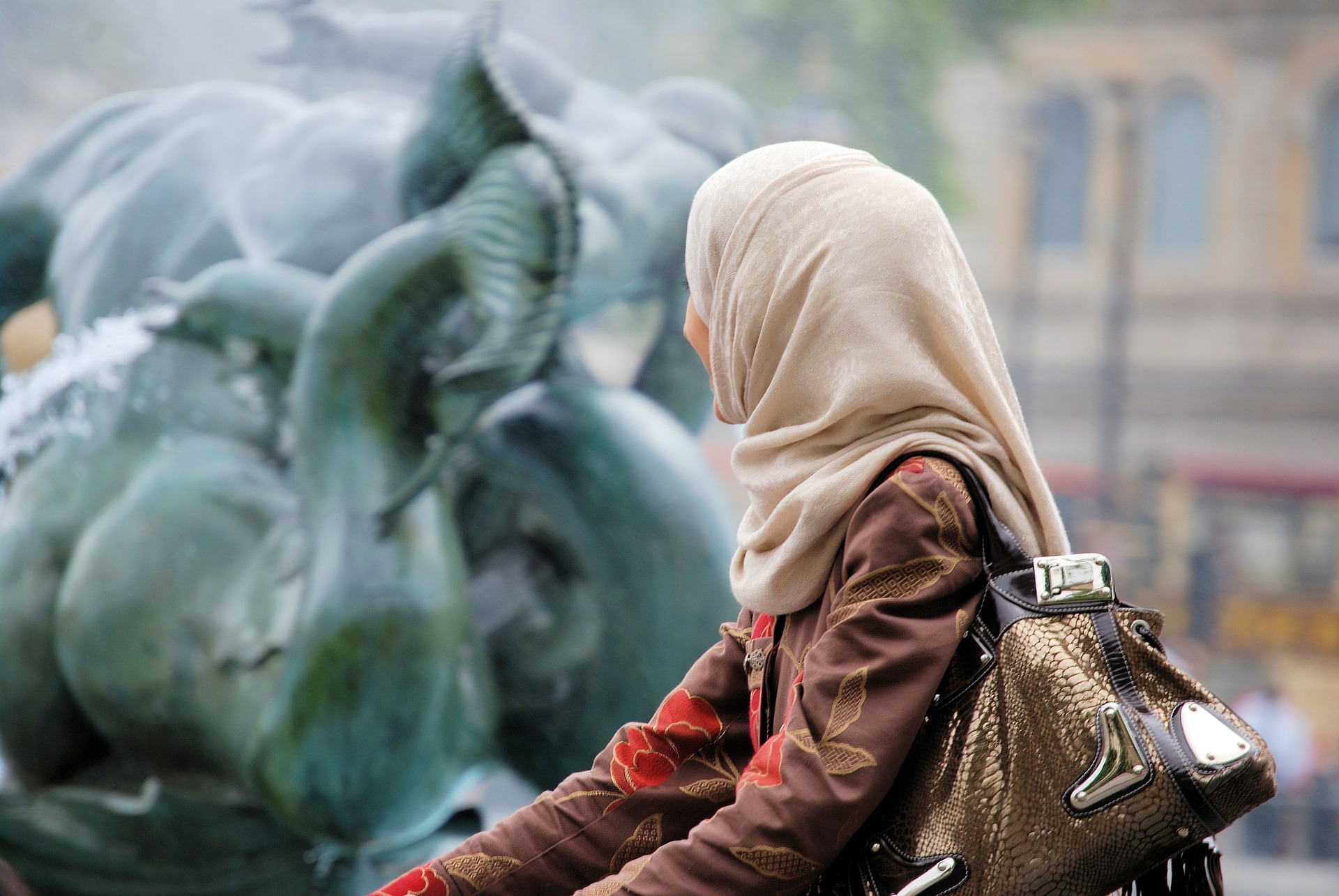Tell MAMA UK, a national project which records and measures anti-Muslim incidents in the United Kingdom., has said that over half of all reported hate crimes in the UK target visibly Muslim women. Religious hate crime has risen in the UK by 40% from 2016 to 2018.
Sammayya Afzal of the Muslim Council of Britain, in a video report for the Middle East Eye explains that gendered Islamophobia happens because Muslim women are “at the intersections of two different identities”, being both visibly Muslim and women. Such attacks described include the ripping off of the hijab, derogatory name calling, and letters through letter boxes threatening acid attacks in Yorkshire to women who wore niqab (the face veiling). Afzal describes it as undermining a Muslim women’s “right to exist in a public space”. The binary way in which Muslim women are viewed is seen to be behind this; because of their dress, they are seen as both oppressed by their own community and complicit in that oppression.
What has been highlighted is that gendered Islamophobia is systemic, fuelled by both the media and politicians, not only from the far right but in the mainstream. Pointing to the historical pattern, Afzal described the public unveiling ceremonies that took place in colonial Algeria. In recent times, the focus on gendered Islamophobia was noted when, in August 2018, former foreign secretary Boris Johnson said, when commenting in support of the introduction of a “burka ban” in Denmark, “I would go further and say that it is absolutely ridiculous that people should choose to go around looking like letter boxes.” Johnson is now the frontrunner in the current conservative leadership contest to replace Theresa May as Prime Minister, having won the first ballot by a large margin. Fiyaz Mughal, founder of Tell MAMA, suggested at the time the comments were made that they were a deliberate pandering to parts of the Conservative Party in anticipation of the expected leadership contest; telling HuffPost UK; “Boris realises that there could be a leadership battle in the next year so he decides to position himself by playing to the soft underbelly of a part of the Conservative Party, one which may have fears about Muslims and who have probably never really got to know Muslims,”
The idea of gendered Islamophobia was also brought up this past year in relation to 2018’s Bodyguard, the BBC’s most watched drama since 2008, with 11 million viewers. The grand twist finale of the show was that the Muslim woman at the centre of the political thriller who was presented as the groomed victim of her oppressive jihadi husband actually turns out to be the violent terrorist herself. Shelina Janmohammed, writing for the Guardian, writes that “Actually, no spoiler alert is needed because these are exactly the stereotypes constantly perpetuated about Muslim women in daily life”. This kind of gendered Islamophobia is also seen to have reared its head with the case of Shamima Begum earlier this year, who, according to Janmohamed, “embodies this exact victim-terrorist paradox”, both a dangerous public enemy and a helpless victim with the loss of three of her children, when the reality is much more complicated.
Commentators on twitter describe the way in which men and women experience Islamophobia differently, and to a greater degree:
Islamophobia and how it manifests is extremely gendered.
My dad has to deal with legal and media harassment; I deal with people in the street and on the bus who literally want me banned/ dead and aren't afraid to say it (and potentially do something about it).
— ~basicbebe~ (@basicbebe1) June 13, 2019
Islamophobia is a real & traumatic experience for Muslim women in Scotland. The victim is more of often that not a women & the perpetrator is almost always a man. We must recognise the gendered nature of hate. #AFightForAllOfUshttps://t.co/6eWpLn4avh https://t.co/6eWpLn4avh
— Anas Sarwar (@AnasSarwar) March 21, 2019
Sources
https://www.middleeasteye.net/video/what-gendered-islamophobiahttps://www.bbc.co.uk/news/uk-45874265https://www.bbc.co.uk/news/uk-politics-45083275https://www.bbc.co.uk/news/uk-politics-48651429https://www.huffingtonpost.co.uk/entry/muslim-women-explain-why-boris-johnsons-gendered-islamophobia-is-dangerous_uk_5b69bf3ee4b0fd5c73ddfce8?guccounter=1&guce_referrer=aHR0cHM6Ly93d3cuZ29vZ2xlLmNvbS8&guce_referrer_sig=AQAAADgIl7ZUVCS5fa_l094XiedlQ-nFOJyWRwFra743wtaH5BtcHXX2AqV2e_XewOhnIgLq16XNUNhGBj6wRcC9RZLgYAsDV65f1cUXhhm4xJCFCxPrbiL2BUEGEQw1vix2KbiMQk7YSFRrLKfevAVFubqBQGYYJ5TyRdDoUt6yUo9Ohttps://www.theguardian.com/commentisfree/2019/mar/01/shamima-begum-muslim-women-targets






